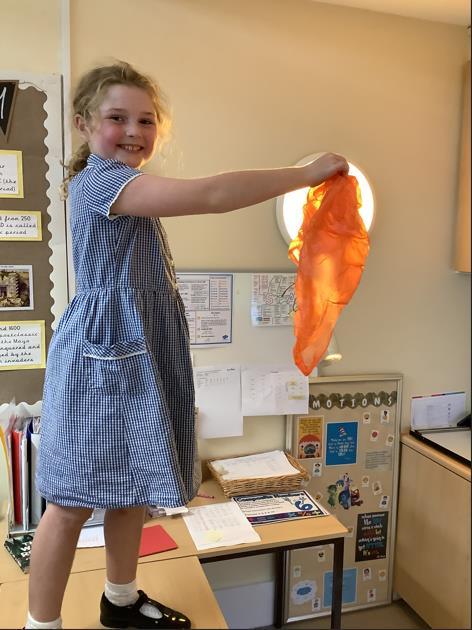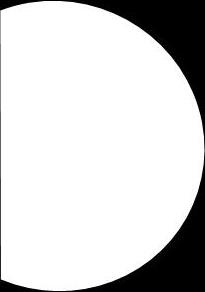
Science at Our Lady of the Rosary
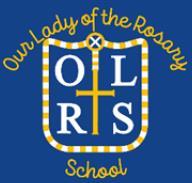



For the LORD gives wisdom; from his mouth come knowledge and understanding.
Proverbs 2:6


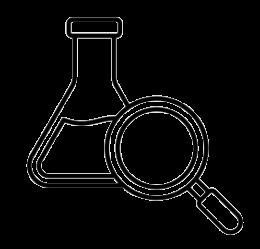

Our vision at Our Lady of the Rosary Catholic Primary School is to provide the highest quality of education within a Catholic ethos. We will provide an inclusive education for all where creativity, diversity and personality are allowed to blossom and thrive and where independence, motivation and perseverance become life-long skills. Through the love of God, we will nurture individual uniqueness, treating others with the utmost respect at all times, working hard using the talents God has given us for the good of other people and to achieve our best. At Our Lady of the Rosary, we will nurture a strong learning partnership between home, school, parish and our wider community. We aim to ensure pupils enjoy learning and feel prepared for life after school. We also intend to offer our pupils new and exciting experiences through extra-curricular activities that are designed to build resilience, confidence and self-esteem. Our curriculum will be delivered in accordance with the Equality Act 2010, through a variety of methods, including those outlined below.
Classroom-based learning: Accessing different learning resources and equipment to broaden pupils’ knowledge, and making cross-curricular links where possible within lesson plans, so that pupils can draw upon knowledge from different subjects and understand how each topic plays a part in everyday life. Classroom teaching also includes one-to-one and small group tuition for pupils who require additional support. Extra-curricular activities: We provide a variety of extra-curricular activities for pupils that enhance their learning experience, form personal connections with their peers, and teach skills essential for life after school.


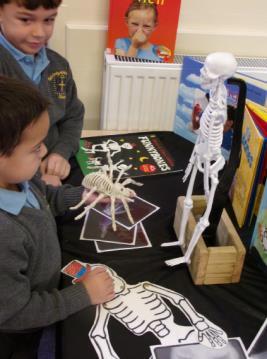
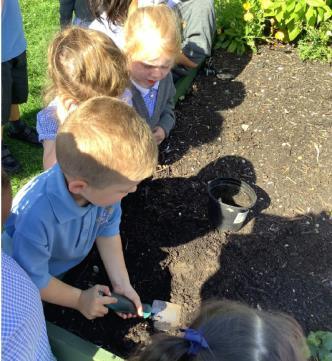





Science should be concerned with providing the foundations for understanding the world through biology, chemistry and physics. We aim for children to understand how science changes their lives and how it is vital to the world’s future prosperity. We teach children the key concepts of science, linking it to their lives to make the subject more relevant. We also teach children how to explore these key concepts while working scientifically, for example, questioning, investigating, grouping and classifying and concluding. We encourage children to develop a sense of excitement and curiosity about natural phenomena and to use science to explain what is occurring, predict how things will behave and analyse causes.








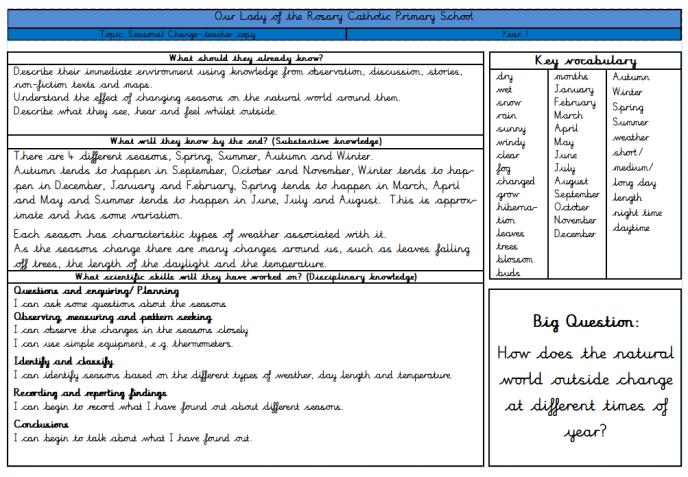


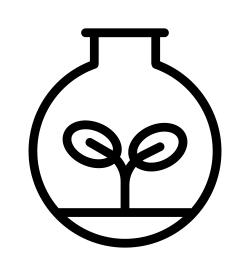

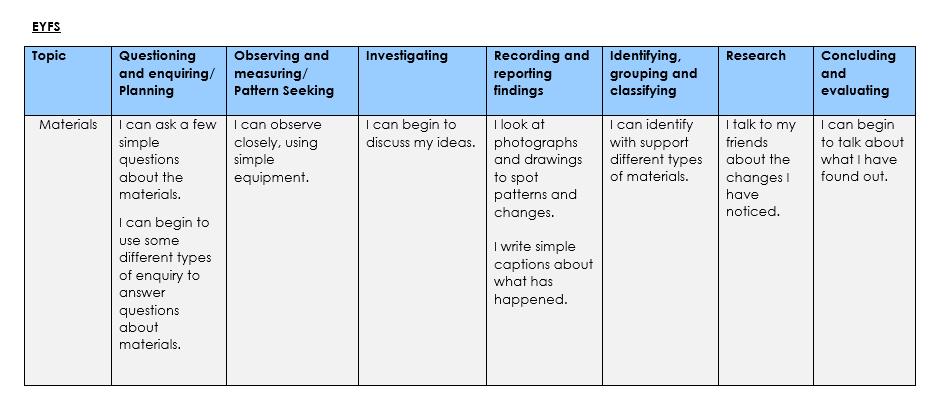



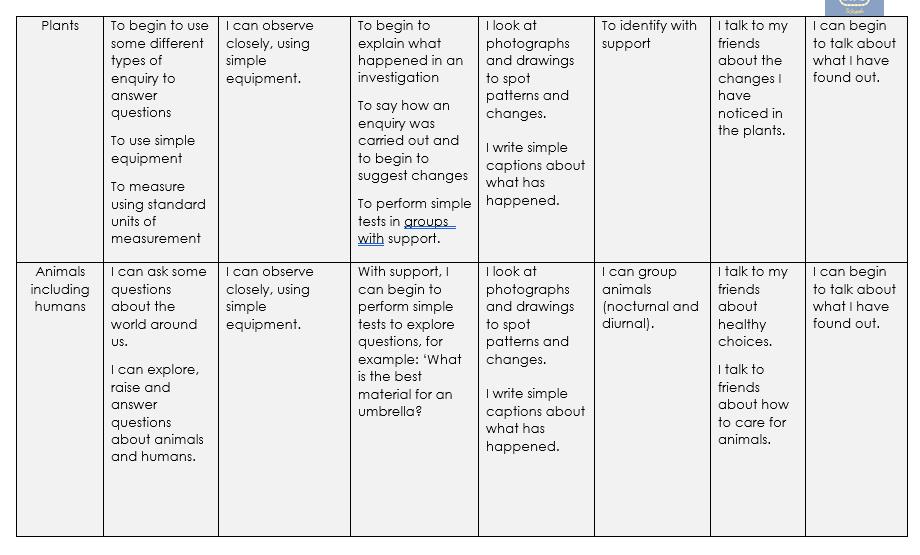





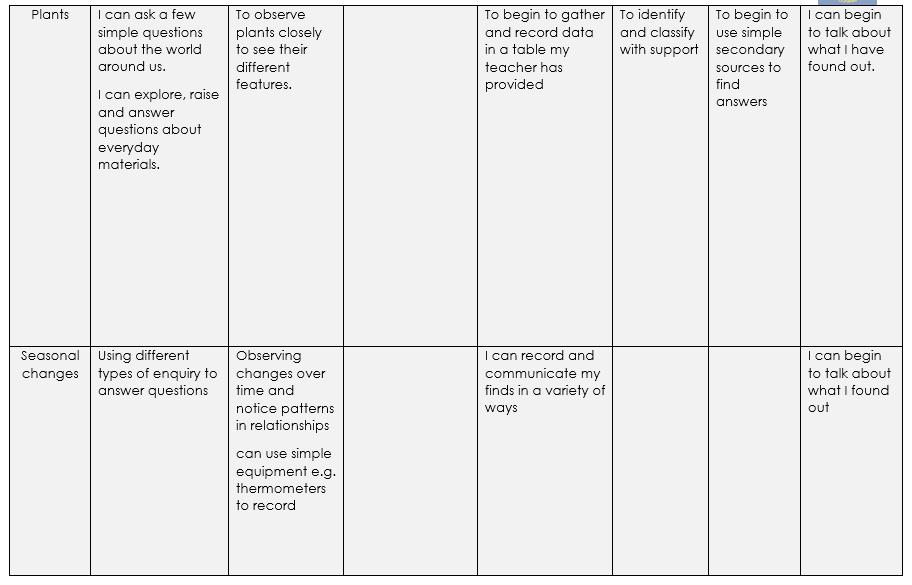



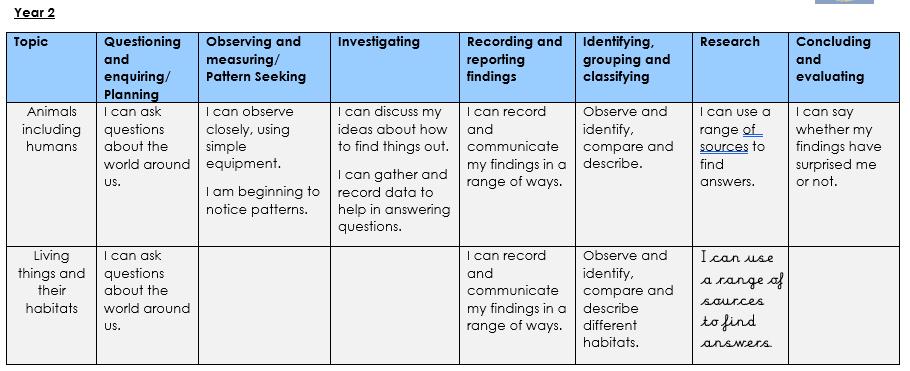







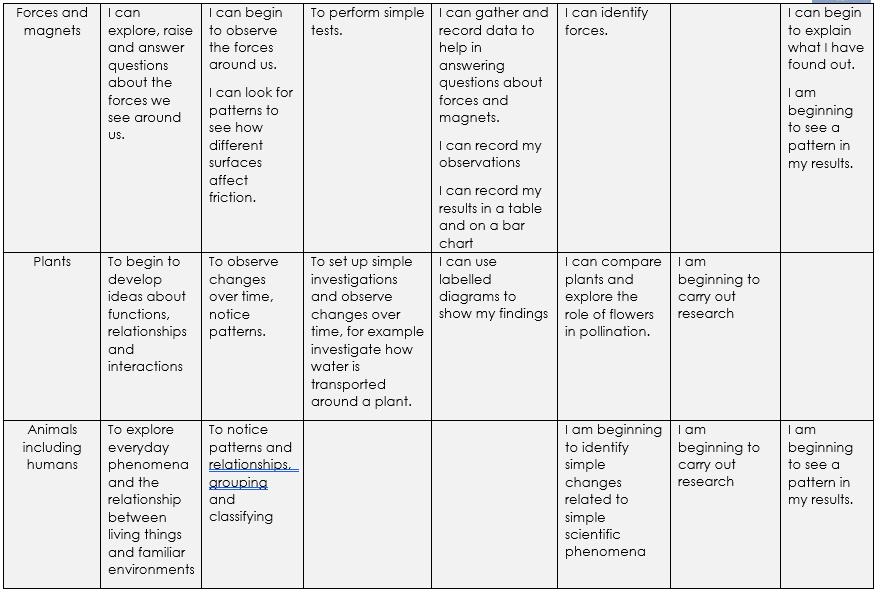

















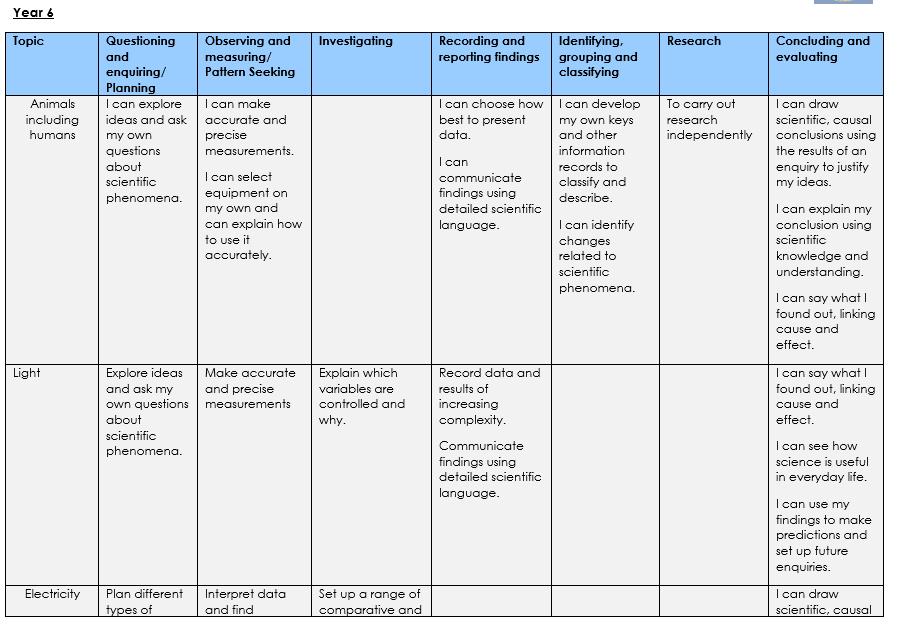
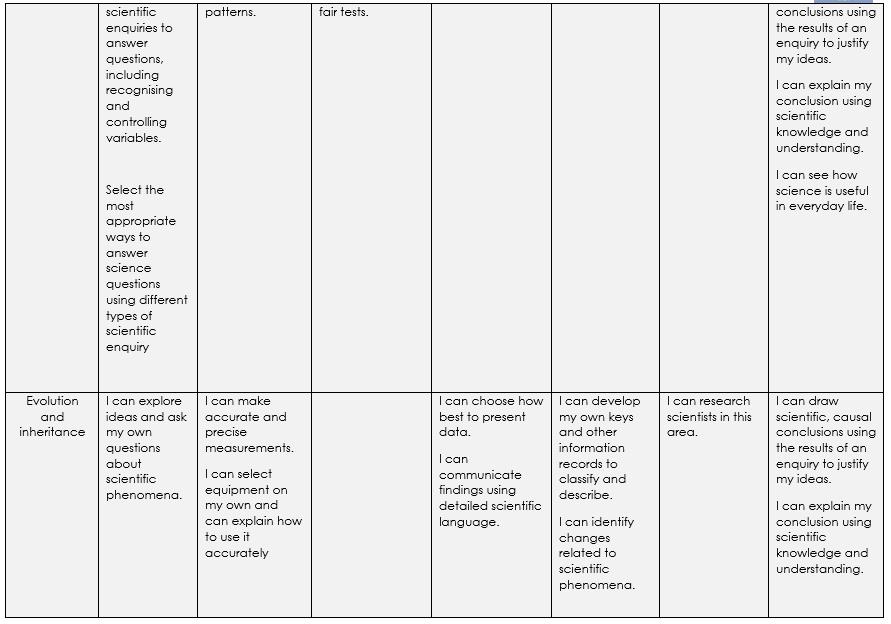










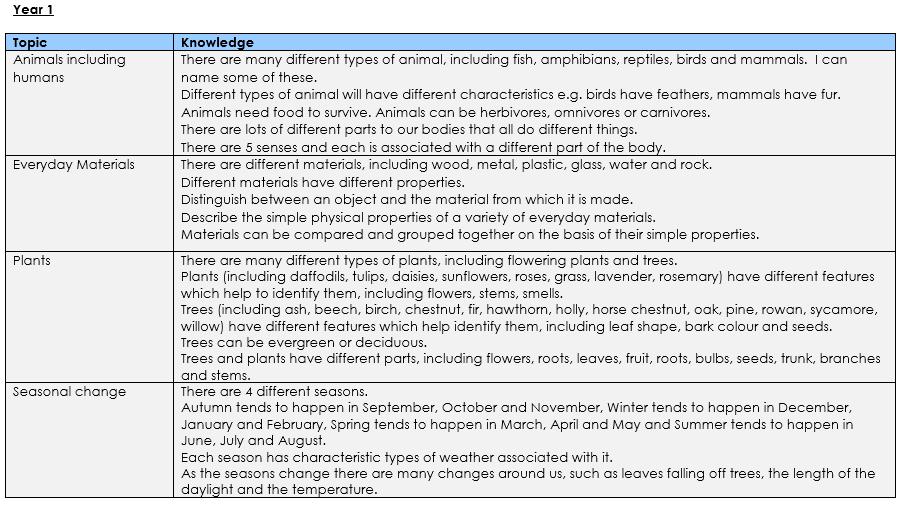
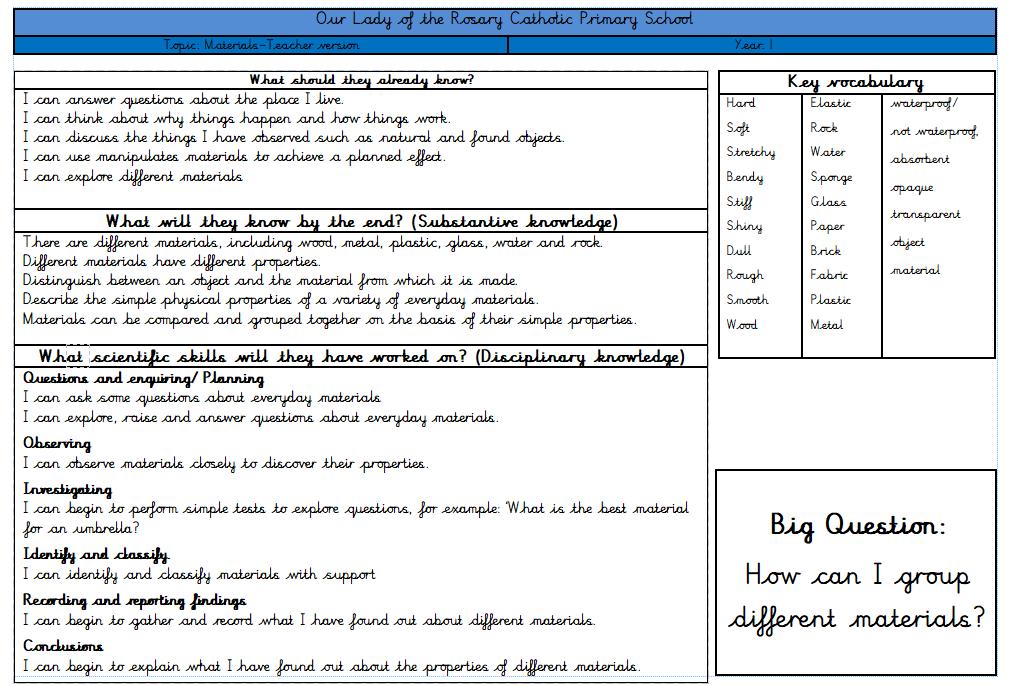










Photos here



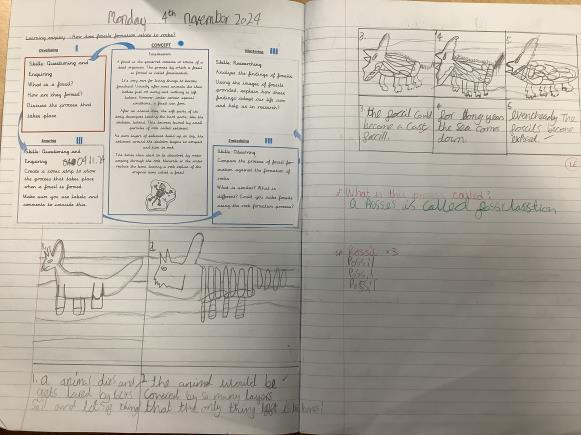





























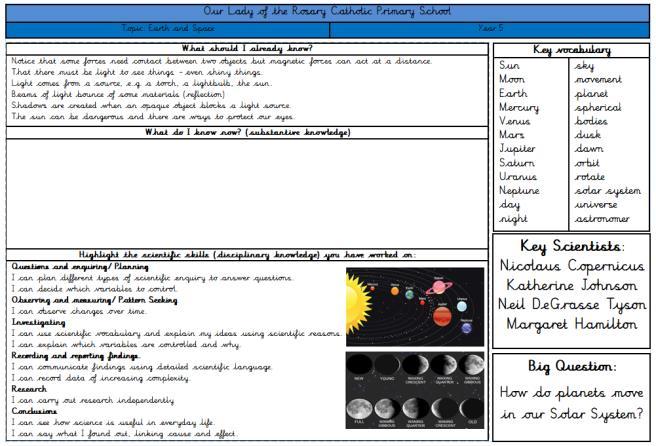


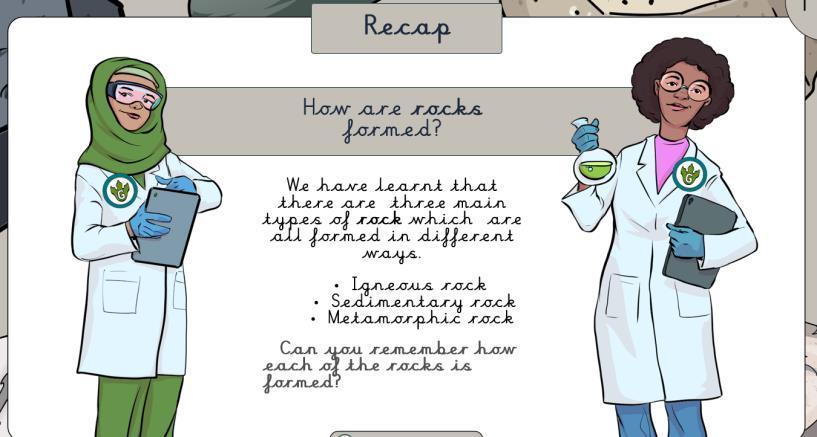

Before starting a topic, pupils will use a knowledge organiser to remind themselves of any prior knowledge they have that will support them in the upcoming topic. They will check what vocabulary they are already familiar with and what they are yet to learn. Science lessons will begin with a starter activity or low stakes retrieval quiz to ascertain what knowledge the pupils have committed to their long term memory from prior lessons, topics or year groups.
After that, the teacher will introduce the new topic for the lesson, often using questioning throughout to check on children’s understanding.







In every lesson, children learn both substantive knowledge (facts and information about their topic) and disciplinary knowledge (scientific skills, such as questioning, gouping, classifying and investigating). These two types of knowledge are intertwined and not taught separately.
Pupils will use their D4D and their knowledge organiser, as well as any displays, work on the whiteboard or handouts to find key concepts and vocabulary linked to the lesson.




Solo Taxonomy is used to provide children with a range of challenging, engaging and motivating tasks to move their learning on.

Every child is able to choose a task that is at the right level for them. Teachers will adapt lessons to support those with additional needs so that they can fully access the lesson. Examples of adaptations include creating an alternative D4D, providing word banks and sentence stems, scribing for children, finding alternative ways for children to show their understanding of a topic.





When it is meaningful to do so, children will work practically to help them with their understanding of the concept being taught in the lesson. We use the outside areas in our school and in the local area to help study topics such as habitats, seasonal change and plants. Teachers will find different ways to record children’s understanding, including writing, drawing, model making, creating videos, powerpoints and taking photos of work.

Children in the older year groups will look at key scientists as part of their learning. These scientists have been chosen to reflect a wide range of backgrounds and cultures, including many scientists who are still living and active in their careers so children are able to see how science is an active and important part of their lives.










In science, we assess children’s work by making judgements as we observe them during each lesson. On completion of a piece of work, the teacher marks the work and provides feedback, either verbal or written.
We also carry out low-stakes retrieval assessment tasks, throughout the topic, to ascertain what knowledge the pupils have retained and are able to recall. Teachers will also use questioning throughout a lesson to check for any misconceptions and to move children on with their learning when they are ready. As they complete a unit of work, children fill in their knowledge organisers to show what they have learned in that topic. The results of these assessments are recorded and reported back to the headteacher, subject leader, pupils and pupils’ parents. We use these assessment results to plan future work with pupils, and to transfer information on to the next teacher at the end of the year.

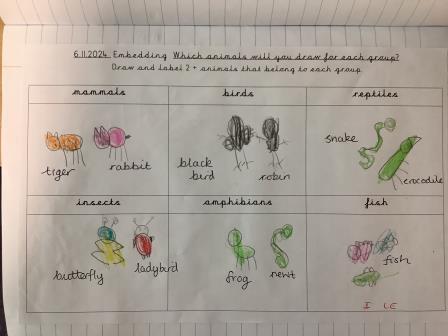
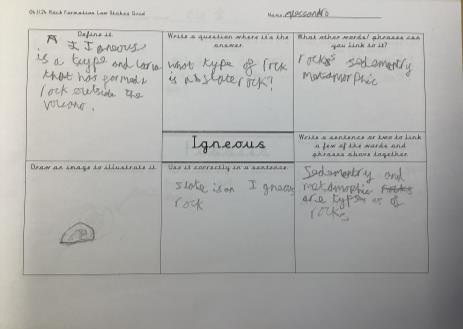



Children have many enrichment opportunities in this school. Trips have included visits to Kew Gardens, the Look Out Discovery Centre, Wooly Firs and Painshill Park. Visits such as these are excellent opportunities for children to see science in a different way and to find out how it plays a part in the world around them. We are also very fortunate to have the river so close and such good local parks, which children have visited to learn more about seasonal change, plants and living things and their habitats.
Inviting visitors into the school is an excellent opportunity to increase the children’s knowledge and interest in a topic. A local astronomer is a highlight for Year 5 and EYFS have been visited by a dentist to help them learn more about keeping healthy.
We are currently involved in a project with the SEED foundation, looking at supporting children’s understanding of science in the Early Years and KS1 through dance, drama and poetry.

We have also had in eggs for animals such as ducks and chickens for pupils to be able to see how animals hatch and grow first hand.





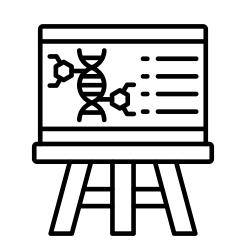

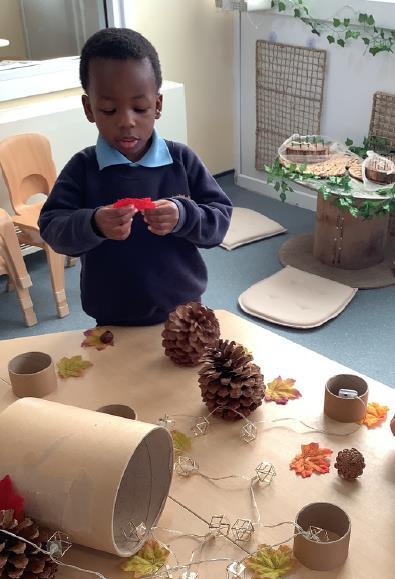

“I like finding out what we’re made of.” Year 1
“I like it when we do investigations, it helps me understand what is going on.” Year 4
“I love science, it’s interesting to see how everything works. It’s also really detailed so we can learn a lot.”
Year 6



Children enjoy science lessons. They are keen to ask questions and make links between what they have learnt at school and at home.
Children are able to recall information they have learnt in previous lessons.
Teachers are coming up with a range of interesting tasks which engage the children and cover the knowledge and skills in each topic. They have considered what makes it easier for children to learn science, for example, encouraging them to learn about plants and animals more familiar to them, getting expert speakers in to allow children to ask more questions or to observe first hand the science in the world around them.

The curriculum is being taught in a well sequenced manner and is leading to good progression. The planning allows knowledge from previous years or topics to be built upon.
The curriculum has been planned to have representation of scientists from a range of backgrounds to ensure our diversity is reflected in the people we learn about. Children in UKS2 can recall some scientists they have learnt about e.g. Isaac Newton, Katherine Johnston and David Attenborough and explain how they have contributed to science.
Children are achieving well in science. 100% of children at the end of KS2 were reported as working at the expected level for science. Our curriculum and teachers planning interesting activities that make science easier to learn supports this.
